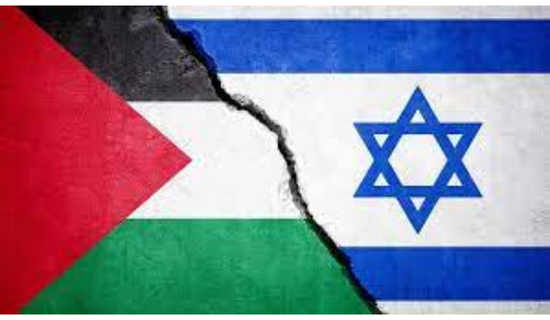Several Arab and Islamic countries have called on the United States to play a “broader role” in pressuring Israel into accepting a ceasefire in the Gaza war, according to the Qatari Foreign Ministry.
In a statement, the Qatari Foreign Ministry said the call was made at a meeting in Washington between Qatari, Egyptian, Jordanian, Saudi, Palestinian, and Turkish foreign ministers, and U.S. Secretary of State Antony Blinken.
They are members of a ministerial committee formed by an emergency Arab-Islamic summit, hosted by Saudi Arabia last month to discuss the Gaza situation.
During their talks with Blinken, the statement indicated, officials expressed disappointment at the UN Security Council’s failure to pass a resolution for an immediate ceasefire in the Gaza Strip for humanitarian reasons after the U.S. used its veto power.
While 13 of the 15 members of the world body voted in favour on Friday, the U.S., Israel’s key ally, vetoed the draft submitted by the United Arab Emirates, but Britain abstained.
Members of the Arab-Islamic committee also renewed their “unified rejection” of the on-going Israeli military campaign in Gaza, an impoverished enclave of around 2.3 million people, and called for an “immediate and complete” ceasefire to protect civilians.
In the past 24 hours, Israeli attacks on Gaza claimed another 133 lives, according to the Hamas-run Health Ministry on Saturday.
No fewer than 71 dead and 160 injured were brought to the al-Aqsa Hospital, on top of 62 dead and around 100 injured taken to the Nasser Hospital, the authority announced on Saturday.
Most of the attacks took place in the central and southern part of the Gaza Strip, according to Palestinian reports.
Israeli ground troops are mainly deployed in the north and south of the coastal strip, supported by the air force.
On Saturday, an Israeli army spokesman issued an appeal in Arabic to residents of homes in the northern Gaza Strip to flee from the fighting to a safer area in the western part of Gaza city.
A westward evacuation will also be permitted from Khan Younis, the announcement said.
In the city of Rafah on the border with Egypt, a four-hour ceasefire will allow the supply of humanitarian aid from the morning onwards.
Fierce fighting has been reported in southern city of Khan Younis, considered a stronghold of the Islamist terrorist organisation Hamas.
So far, Israel’s National Security Advisor Tzachi Hanegbi said the Israeli armed forces have killed around 7,000 Hamas terrorists in the war on Gaza.
Israeli units have also moved very close to Hamas command centres in Jabalia and Shejaiya in the north of the Gaza Strip, Hanegbi told Channel 12 on Saturday evening.
The Israeli leadership’s plan is to kill Hamas leader Yehya al-Sinwar, he said.
“If we kill him, and that is the plan, then the leadership that succeeds him may understand that if they want to escape his fate, they will have to leave Gaza, as losers,” said Hangebi.
A total defeat of Hamas would also clear the way for the liberation of 138 hostages still held by the Islamists, he said.
Meanwhile as Israeli soldiers continue their attempts to rescue the hostages held in Gaza, a 25-year-old Israeli man who was abducted on Oct. 7 has died, according to statements released on Saturday.
“It is with deep sorrow and a broken heart that we announce the murder of Sahar Baruch (25) who was kidnapped from his home by Hamas terrorists on October 7th,”
Kibbutz Be’eri, where Baruch lived, and the Hostages and Missing Families Forum Headquarters said in a joint statement.
Renewed fighting also took place on Israel’s northern border with Lebanon, after militants reportedly launched rockets from southern Lebanon into Israeli territory.
The Israeli military said retaliatory strikes were carried out.
There were initially no reports of casualties on either side.
Lebanese security sources told dpa that the border village of Aita al-Shaab was hit by heavy air strikes during the night.
The sources believed that mainly Hezbollah members were there at the time.
The Hezbollah-affiliated broadcaster Al Mayadeen reported that several houses in the village were destroyed.
The Lebanese TV station Al-Manar, which is run by the political wing of Hezbollah, reported that other villages in the border area had also been hit by Israeli fire.
Hezbollah itself did not immediately comment on the strikes.
Israel’s military spoke of “terror targets,” including Hezbollah command and control centres.
Since the start of the current war in Gaza, there have been repeated confrontations between Israel’s army and militant groups including Hezbollah in the Israeli-Lebanese border region.
It is the most serious escalation since the 2006 war in Lebanon.
The war was triggered by the worst massacre in Israel’s history, carried out by terrorists from the Islamist Hamas and other extremist groups on Oct. 7 near Israel’s border with Gaza.
More than 1,200 people were killed on the Israeli side, including at least 850 civilians, according to the Israeli government.
According to the latest figures from the Health Ministry in Gaza, almost 17,700 people have been killed in Israel’s counter-attacks.
A further 48,780 people were injured, said Ashraf al-Kudra, spokesman for the Palestinian Ministry of Health.
dpa/NAN
